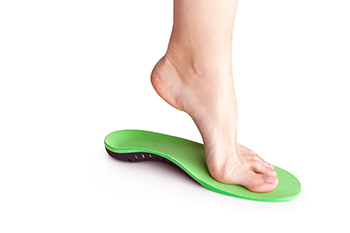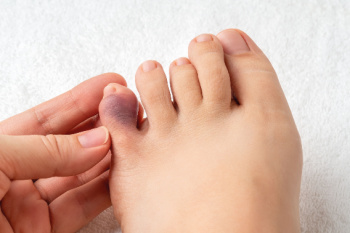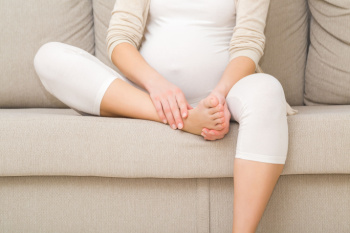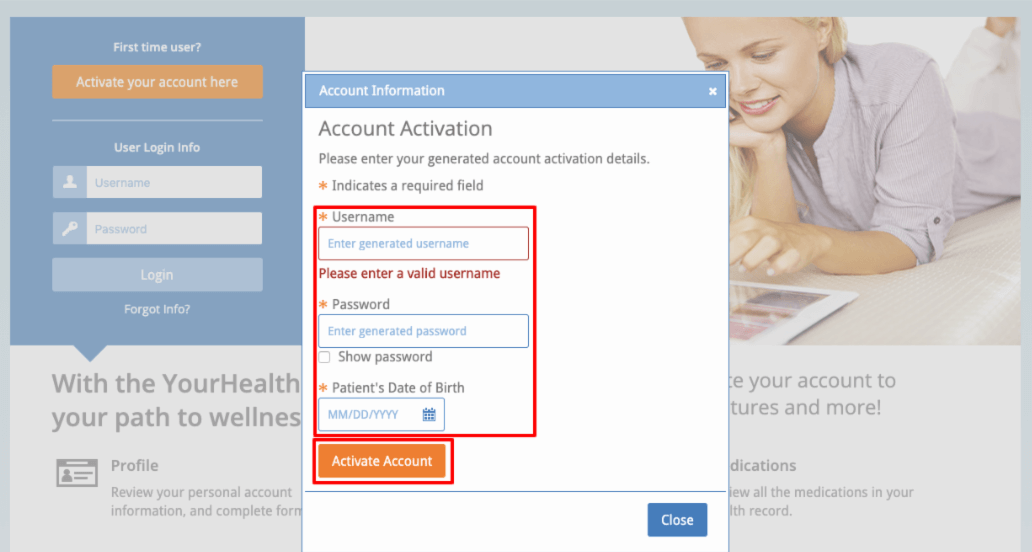Connect With Us
Blog

Custom-made foot orthotics are personalized shoe inserts designed to support and align the feet properly. They are crafted based on an individual's foot shape, biomechanics, and specific needs. Orthotics can help alleviate various conditions such as bunions, foot pain, and plantar fasciitis. Orthotics improve mobility by providing stability, cushioning, and redistributing pressure on the feet. Users often perceive wearing orthotics positively, experiencing reduced discomfort and improved functionality. Orthotics offer relief by correcting foot abnormalities, reducing strain on muscles and joints, and promoting proper alignment. Many find that orthotics enhance their ability to engage in physical activities with less pain and fatigue. However, it is essential to wear them consistently and break them in gradually to allow the feet to adjust. If you are interested in learning whether custom-made orthotics can benefit you, it is suggested that you schedule an appointment with a podiatrist for an evaluation and discussion.
If you are having discomfort in your feet and would like to try orthotics, contact Imaze Marian Davis, DPM from Marian Davis, DPM, PA. Our doctors can provide the care you need to keep you pain-free and on your feet.
What Are Orthotics?
Orthotics are inserts you can place into your shoes to help with a variety of foot problems such as flat feet or foot pain. Orthotics provide relief and comfort for minor foot and heel pain but can’t correct serious biomechanical problems in your feet.
Over-the-Counter Inserts
Orthotics come in a wide variety of over-the-counter inserts that are used to treat foot pain, heel pain, and minor problems. For example, arch supports can be inserted into your shoes to help correct overarched or flat feet, while gel insoles are often used because they provide comfort and relief from foot and heel pain by alleviating pressure.
Prescription Orthotics
If over-the-counter inserts don’t work for you or if you have a more severe foot concern, it is possible to have your podiatrist prescribe custom orthotics. These high-quality inserts are designed to treat problems such as abnormal motion, plantar fasciitis, and severe forms of heel pain. They can even be used to help patients suffering from diabetes by treating foot ulcers and painful calluses and are usually molded to your feet individually, which allows them to provide full support and comfort.
If you are experiencing minor to severe foot or heel pain, it’s recommended to speak with your podiatrist about the possibilities of using orthotics. A podiatrist can determine which type of orthotic is right for you and allow you to take the first steps towards being pain-free.
If you have any questions please contact our office located in Miami, FL . We offer the newest diagnostic and treatment technologies for all your foot and ankle needs.

Experiencing toe pain due to a broken toe is an all-encompassing challenge that can disrupt daily life and mobility. A broken toe, often resulting from trauma or injury, can cause sharp pain, swelling, and difficulty bearing weight on the affected foot. The pain emanates from the fracture site, creating discomfort with each step and hindering the simplest of movements. Beyond the physical sensations, the inconvenience of managing daily tasks becomes palpable, as even the act of wearing shoes can exacerbate the pain. It is important to recognize the signs of a broken toe early on and it can help to seek medical attention from a podiatrist. While the road to recovery may be challenging, understanding the nature of toe pain from a broken toe and adhering to recommended treatments can significantly enhance the healing process and minimize long-term complications. If you have endured a broken toe, it is suggested that you visit this type of doctor who can guide you toward treatment and relief techniques.
Toe pain can disrupt your daily activities. If you have any concerns, contact Imaze Marian Davis, DPM of Marian Davis, DPM, PA. Our doctors can provide the care you need to keep you pain-free and on your feet.
What Causes Toe Pain?
Most severe toe pain is caused due to a sports injury, trauma from dropping something heavy on the toe, or bumping into something rigid. Other problems can develop over time for various reasons.
Toe pain can be caused by one or more ailments. The most common include:
- Trauma
- Sports injury
- Wearing shoes that are too tight
- Arthritis
- Gout
- Corns and calluses
- Hammertoe
- Bunions
- Blisters
- Ingrown toenails
- Sprains
- Fractures (broken bones)
- Dislocations
When to See a Podiatrist
- Severe pain
- Persistent pain that lasts more than a week
- Signs of infection
- Continued swelling
- Pain that prevents walking
Diagnosis
In many cases the cause of toe pain is obvious, but in others, a podiatrist may want to use more advanced methods to determine the problem. These can range from simple visual inspections and sensation tests to X-rays and MRI scans. Prior medical history, family medical history, and any recent physical traumatic events will all be taken into consideration for a proper diagnosis.
Treatment
Treatments for toe pain and injuries vary and may include shoe inserts, padding, taping, medicines, injections, and in some cases, surgery. If you believe that you have broken a toe, please see a podiatrist as soon as possible.
If you have any questions please feel free to contact our office located in Miami, FL . We offer the newest diagnostic tools and technology to treat your foot and ankle needs.

Pregnancy is a journey filled with excitement and anticipation, but it can also bring its own set of challenges, including foot pain. Expecting mothers often find themselves dealing with discomfort and swelling in their feet, making each step a bit more challenging. However, there are ways to manage this discomfort and make the journey smoother. This can begin with investing in comfortable and supportive footwear. Opt for shoes with low heels and ample cushioning to provide relief to your tired feet. Additionally, elevating your feet whenever possible can help reduce swelling and alleviate pressure. Another helpful tip is to incorporate gentle exercises into your daily routine, such as walking or swimming, to improve circulation and strengthen your feet and ankles. Remember to stay hydrated and maintain a balanced diet to support overall health and reduce swelling. Lastly, do not hesitate to seek support from your podiatrist if foot pain becomes severe or persistent. This type of doctor can offer personalized advice and recommend safe treatment options to help you manage foot pain effectively throughout your pregnancy, If you are experiencing any foot discomfort during your pregnancy, it is suggested that you consult a podiatrist who can provide you with relief options.
Pregnant women with swollen feet can be treated with a variety of different methods that are readily available. For more information about other cures for swollen feet during pregnancy, consult with Imaze Marian Davis, DPM from Marian Davis, DPM, PA. Our doctors will attend to all of your foot and ankle needs.
What Foot Problems Can Arise During Pregnancy?
One problem that can occur is overpronation, which occurs when the arch of the foot flattens and tends to roll inward. This can cause pain and discomfort in your heels while you’re walking or even just standing up, trying to support your baby.
Another problem is edema, or swelling in the extremities. This often affects the feet during pregnancy but tends to occur in the later stages.
How Can I Keep My Feet Healthy During Pregnancy?
- Wearing orthotics can provide extra support for the feet and help distribute weight evenly
- Minimize the amount of time spent walking barefoot
- Wear shoes with good arch support
- Wear shoes that allow for good circulation to the feet
- Elevate feet if you experience swelling
- Massage your feet
- Get regular, light exercise, such as walking, to promote blood circulation to the feet
If you have any questions please feel free to contact our office located in Miami, FL . We offer the newest diagnostic and treatment technologies for all your foot and ankle needs.



